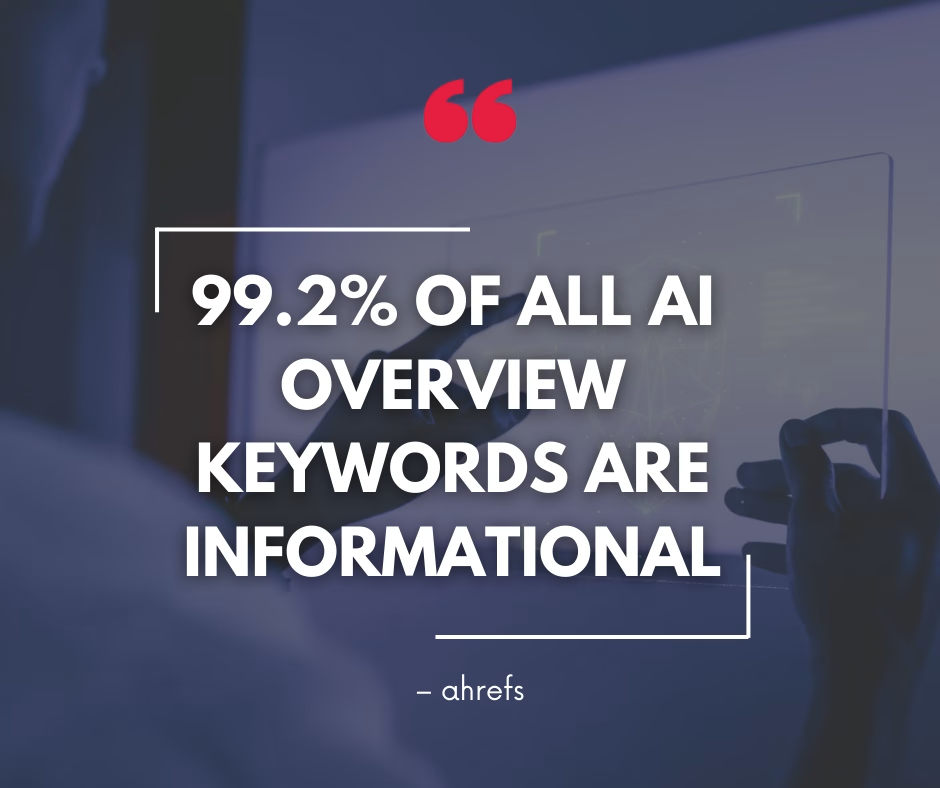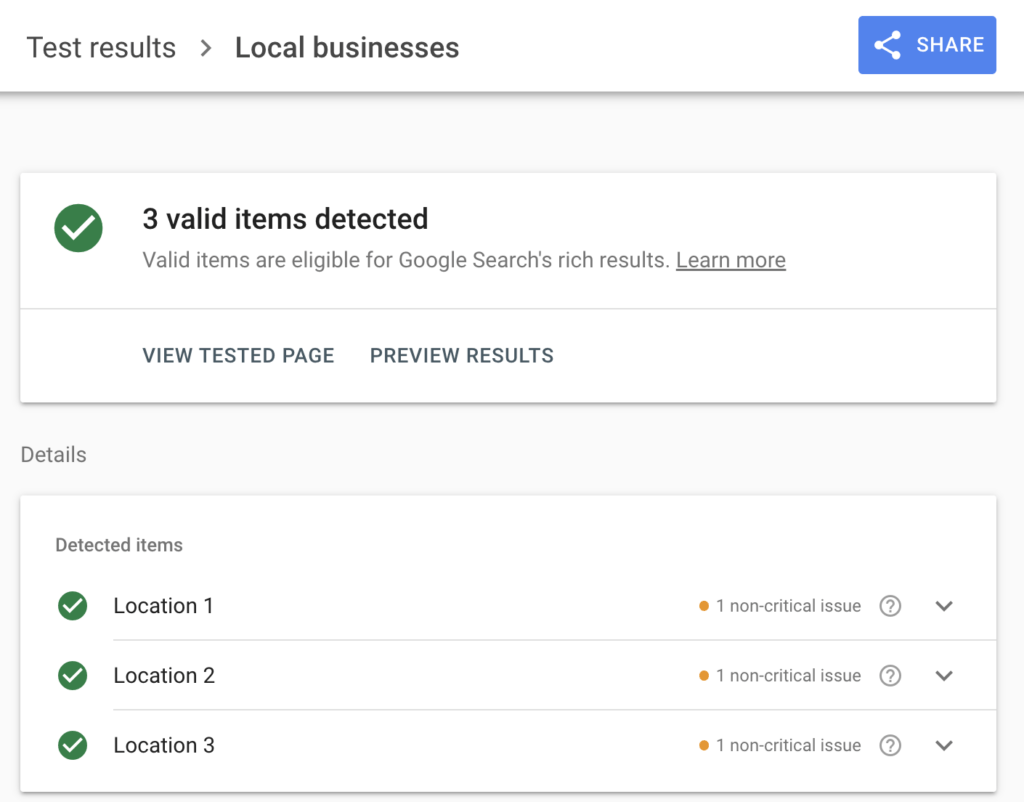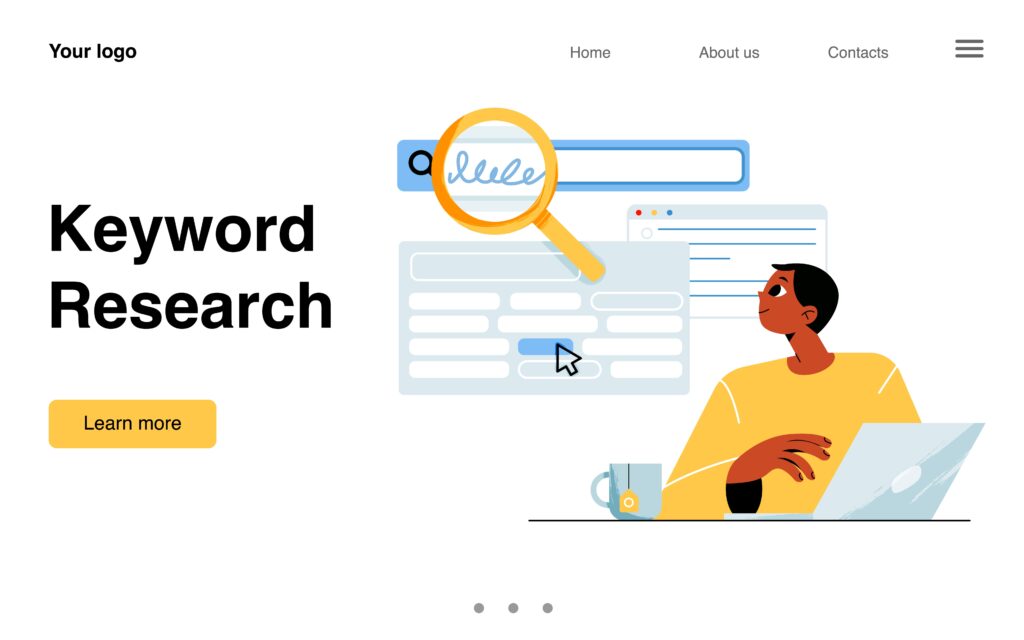How AI Overviews Are Transforming SEO and Search Strategy
Have you noticed how search results look a little different lately? You’re not alone. AI overviews are shaking up the search experiences, and it’s changing the way users find and interact with information online.
Let’s dive into what’s happening and what it means for your business.
In this article:
How AI is Revolutionising Search and SEO
In just 18 months, artificial intelligence has redefined not only online search but also how people process and engage with information.

Did you know one in ten U.S. internet users now turn to generative AI first for online searches? Tools like OpenAI’s ChatGPT and Google’s Gemini are leading the change.
Here’s the kicker: AI search tools are projected to become the primary search method for over 90 million U.S. adults by 2027.
AI Search Engines Gain Ground
While traditional giants like Google and YouTube still dominate in overall search traffic, AI-powered search engines are climbing rapidly:
- Brave Search and TikTok reported impressive year-on-year gains in 2023 and 2024.
- Google’s Gemini, a language model designed to deliver dynamic, multi-modal search results, is revolutionising how users engage with information.
- ChatGPT, equipped with its custom browsing capabilities, continues to set benchmarks in user engagement.
- Perplexity AI, a conversational search engine, has gained attention for its ability to deliver nuanced answers with cited sources, making it a favourite among knowledge seekers.
So, what does this mean for search strategies?
Impact on SEO Strategies
The rise of AI has rewritten the rules of SEO. Here’s how:
- Semantic Search Optimisation: Google is prioritising search intent over keywords. Your content marketing strategy must address nuanced queries.
- Content Quality and Relevance: Forget keyword stuffing—high-quality, authoritative content is now non-negotiable.
- User Experience: With AI delving deeper into content analysis, your website’s UX is just as critical as the content itself.
- Featured Snippets: Securing featured snippets has become more competitive, as pages with these snippets enjoy an 8.6% higher click-through rate.
By addressing specific user intents and focusing on relevancy, you can align with AI-driven priorities.
What are AI Overviews?
AI overviews are concise, AI-generated summaries that appear directly in search results, providing users with immediate answers.
While convenient for users, they can impact website traffic:
- Approximately 65% of users remain on the search results page when the AI overview provides the information they seek, reducing the need to visit external websites.
- This has led to a notable decline in click-through rates for organic search results, with some reports showing a drop of up to 37% over the past two years.
- Websites may experience a decrease in organic traffic ranging from 18% to 64% due to the prominence of AI overviews.
Industries affected include eCommerce, news outlets, and service-based businesses.
Read also: How AI Overviews in Search work (Google)
How Can Marketers and Business Owners Adapt to the Rise of AI Overviews?
If you’re a marketer or business owner, this shift poses new challenges. Here’s how to adapt:
- Authority Building: AI overviews favour trusted sources. Make your business an authority in your industry by publishing well-researched and credible content.
- Content Adaptation: Create concise, high-quality content to align with AI’s preference for accuracy and authority.
- Diversification: Reduce reliance on organic search. Explore other digital marketing channels, including social media, email marketing, and paid advertising.
- Continuous Monitoring: Regularly analyse website metrics to identify trends and inform adjustments to SEO strategies in response to the evolving search ecosystem.
How to Optimise for AI Overviews
As AI-driven overviews transform how users discover information online, optimising your content strategy for these features has become essential to maintaining visibility and traffic. To ensure your content aligns with the search intent for AI overviews:
1. Create Authoritative, High-Quality Content

Produce comprehensive, well-researched content that directly addresses user queries. Google prioritises depth, accuracy, and authority when generating overviews. Incorporate clear answers and in-depth explanations to satisfy both AI algorithms and human readers.
2. Structure for AI Readability

Organise your content to improve skimmability and extraction of key information:
- Use clear headings and subheadings.
- Write concise paragraphs and bullet points.
- Add answer-oriented sections addressing main queries early on, ensuring AI can quickly identify relevant information.
3. Implement Structured Data

Use schema markup (e.g., FAQPage, Article, or HowTo) to help AI understand your content’s context and relevance. Structured data not only improves your chances of being featured in AI overviews but also enhances overall search visibility.
Check your website’s structured data with Google’s Rich Results Test, which validates markup and shows potential rich result opportunities for your web pages
4. Target Long-Tail Keywords

Focus on specific, detailed queries such as:
- “How AI is changing legal research in private equity”
- “Impact of AI on due diligence in private equity deals”
- “Best practices for law firm SEO in the age of AI”
- “AI-driven compliance solutions for law firms”
Long-tail keywords like these reflect the precise, professional questions your prospects might ask, increasing your chances of appearing in AI overviews relevant to their needs.
5. Include FAQs and Practical Insights
Incorporate FAQs that answer practical, user-centric questions related to your sector, for example:
- What is an AI overview in legal research?
- How can private equity firms adapt their due diligence process with AI?
- How does AI impact client confidentiality in law firms?
- What are the SEO strategies for professional services in an AI-driven search landscape?
This kind of content aligns with your target audience’s concerns and search intent, making your article more relatable and likely to be surfaced by AI search tools.
6. Leverage Multimedia Formats
Add images, videos, infographics, or interactive elements to increase engagement. These visuals not only make content more appealing but also help AI better interpret and value your content.
7. Prioritise User Experience

Ensure your website is mobile-friendly, fast-loading, and easy to navigate. AI algorithms consider user experience as part of ranking criteria, so seamless usability can improve your visibility in AI-driven results.
8. Optimise for Voice Search

Adopt natural language and conversational phrasing to align with voice search queries. Many AI overviews are triggered by conversational searches, so tailoring your content accordingly can increase its relevance.
- Focus on long-tail keywords and question-based phrases that mimic natural speech patterns.
- Ensure your website is mobile-friendly and optimise for local search to improve visibility in voice search results.
Learn more: Voice search for business
9. Diversify Your Content

Cater to various user preferences by producing different formats, such as long-form articles, listicles, and how-to guides. This diversification makes your editorial content versatile and adaptable to a wide range of query intents.
10. Keep Content Fresh and Relevant
Regularly update your editorial content to maintain its relevance and accuracy. AI prioritises up-to-date information, so refreshing your articles can improve their ranking potential.
Learn more: How to appear in AI features [By Google]
The Future of Search: Adapting to Change
As AI becomes central to search engines, the way users access information is changing.
While direct answers are more common, the need for original sources persists, as users still value detailed exploration and verification.
Interestingly, younger audiences are turning to social media platforms for brand discovery, and a significant portion of users report that chatbots like ChatGPT have largely replaced traditional search engines for their search needs.
What should you do next? Keep diversifying your content marketing while building authority across channels.
Conclusion
The AI revolution is here, and it’s transforming the way we think about search. As tools like Google’s Search Generative Experience and ChatGPT become mainstream, businesses must stay agile. By focusing on quality, authority, and adaptability, you can thrive in this new era.
Ready to future-proof your search strategy?
Contact us for a free SEO audit tailored to the AI-driven search landscape. Learn more about optimising for AI search with our professional SEO services.

Our commitment to excellence is underscored by our recognition as a top technical SEO agency in the United Kingdom for 2024.
Related
Articles


